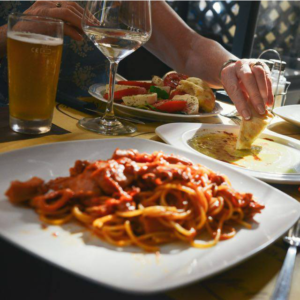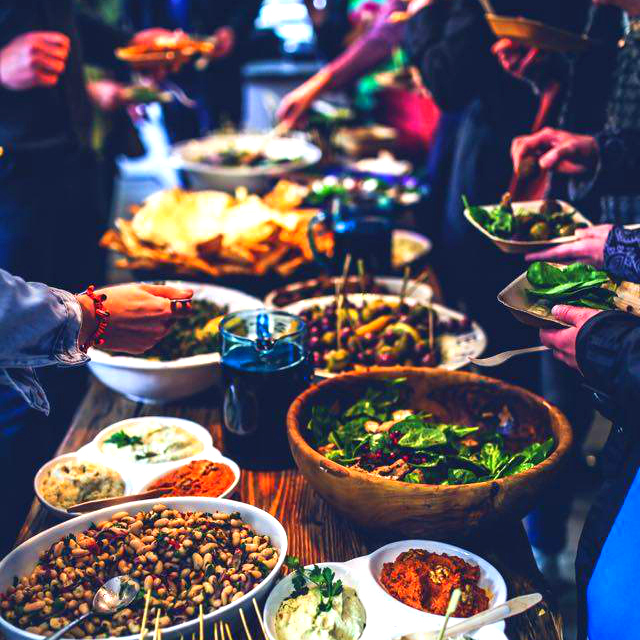Food.
Few things can be as insidiously polarizing as the way we feed ourselves. It’s a very fraught subject, isn’t it? Our choices in the matter tend to be very personal, both on the nutritional and the emotional front.
If we’re able to admit that our own choices are just that, why do we struggle so much with recognizing that others’ choices are as well?
As personal as food choices can be, we seem to make it very much our own business to talk about what others are eating—in person, on social medial, or just as a running commentary about others who will likely never hear what we are saying.
Do we realize how much of a selfish practice that is?
Different isn’t good or bad. It isn’t a qualifier. It just is.
Jody Carmichael
One thing that irks me about food commentary is actually pretty basic: Why do some deem it acceptable to make negative observations on food they know little about?
Be it about seldom-encountered foods, different preparations or eating habits, or distinctive cultural practices, how is making disparaging remarks EVER the right thing to do?
It’s time to grow up: expressions of dismay about food that’s different is just f****** immature! What are you, four years old? No one wants to hear a picky eater harp on things they dislike!
How about opening yourself up to the world a little, widen your food horizons, and show a bit of respect instead?
Being genuinely curious about someone else’s meal, and politely inquiring about it is obviously ok. Reacting like a spoiled child? Never! (I don’t even allow my own very young children to react like that!)
WHEN SELF-IMPORTANCE IS DISGUISED AS CONCERN
It happens more often than not that self-appointed food critics will claim care and concern as a backing logic for their words.
It sounds familiar, doesn’t it?
The thing is, unless you are a professional whose services have been expressly requested by the eater in question, you actually probably shouldn’t comment.
We think we’re doing others a favour, but we likely aren’t; instead of offering solutions, we may be offering stress and shame. What people eat can be motivated by a host of factors:
- Cultural or religious traditions;
- Health conditions, be it certain illnesses, allergies, intolerances or eating disorders;
- Ethical motivations, like the choice to consume animal products or not;
- Reasons that are simply beyond your understanding, and belong to them alone.
I’ll repeat what I said above: food choices are deeply personal, and people want to feel autonomous in those choices. Even in the case of someone who genuinely wants to adopt better nutritional habits, we may actually inflict some damage by pushing the issue—they suddenly feel pressured, and therefore retreat to their comfort zone. It’s one of the most common human reactions out there!

In the end, remember that we are more alike than we think… or even than we’d like. Do you enjoy your own way of eating? Great! Then stop using food as a social divider, and keep your eyes on your own plate!


